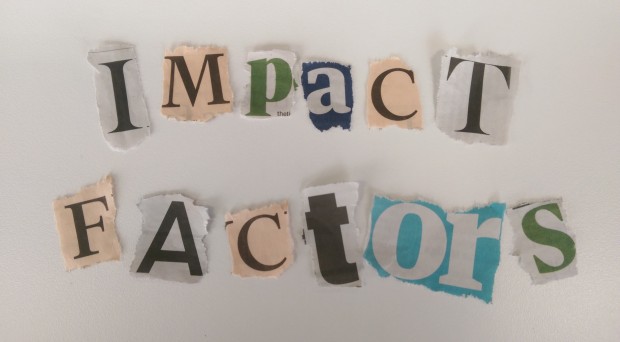
I’m an Early Career Researcher. There’s a hashtag for people like me and everything, so I feel it justifies the capital letters.
However, despite the relative importance of my job – as judged by the world of social media – my career essentially depends on an ironically non-scientific means of gauging success: the impact factor.
Every year, Thomson Reuters judges how important each scientific journal has been in contributing to scientific progress by calculating the average number of times each article in the journal was cited over the course of the two previous years.
Obviously, this is fundamentally flawed – there are lots of excellent commentaries on why, many of which I have read, sighed heavily at, and then made myself a strong coffee and gone back to the lab.
Because the brutal reality of the situation to someone in my position is: regardless of how unrepresentative and misleading impact factors are, my funding and therefore my career depend on them, and that’s that.
Regardless of how unrepresentative and misleading impact factors are, my funding and therefore my career depend on them, and that’s that.
I’m aware this possibly sounds defeatist, but it’s also realistic.
The first thing many reviewers of grant applications will do is scan the ‘Publications’ section of the applicant’s CV and see which journals have accepted their work.
If you don’t have a paper in at least one of the top-notch, elite journals (as defined by the aforementioned arbitrary system of impact factors) then you may as well have spent those three weeks of your life writing your grant application on blowing bubbles instead.
Last year Nobel Prize winner Randy Schekman was criticized for announcing his boycott of the top ‘luxury’ journals.
Many people said this statement was ludicrous, because only a Nobel Prize winner can afford to choose whether or not to publish in high impact journals; Schekman’s funding is secured for life, so he has nothing to worry about. What does he know of the plight of us poor early career researchers (yes, that’s #ecr) who struggle to get even a single paper together to try and write a grant?
But the point is – he is in a position where he can make a statement. And he did. Schekman’s boycott caught the attention of the scientific community, the publishing houses, and the world’s mainstream media. Suddenly the absurdity of such a metric, and its ripple effect on scientific integrity, was very much in the public eye.
And that’s what needs to happen. An awareness of the issue will precede any radical changes to the system, which of course will take years. A shift in attitude of the entire community is necessary; one where we aren’t required to have a Nature paper to secure funding. A change from the position we are currently in where, quite frankly, we feel we can’t afford to sacrifice our careers for the greater good.
People like Randy Schekman have a voice that is heard, respected, and (hopefully) heeded. Let’s support people like him, and hope that eventually the funding bodies will begin to take into account things other than impact factor when reading grant applications.
This post is the fifth post in Bryony’s series: ‘Trials, tribulations, triumphs, and test tubes: life as an early career researcher’.
3 Comments